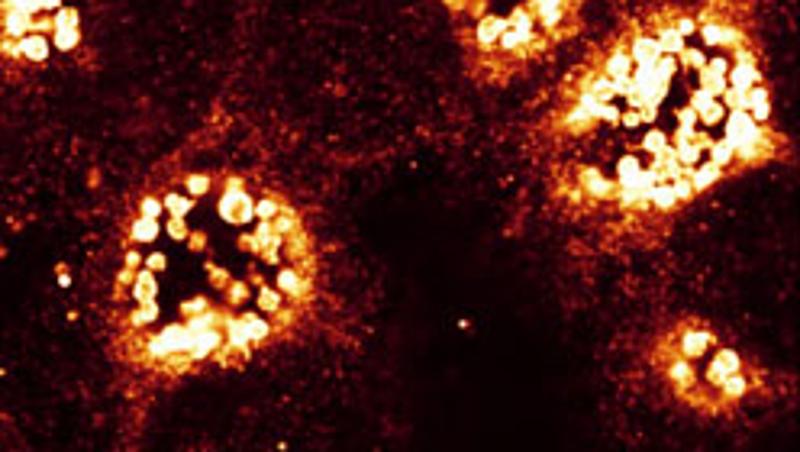
Scientists are developing a treatment to prevent infertility in women from a sexually transmitted infection that has reached epidemic levels among young people, Chlamydia.
A QUT research team, led by microbiologist Dr Willa Huston from the Institute of Health and Biomedical Innovation (IHBI), has partnered with The Wesley Research Institute in Brisbane to investigate a drug therapy that could inhibit a key protein (CtHtrA) in Chlamydia.
Dr Huston said researchers hoped to develop the first treatment for women whose reproductive organs had been damaged by the Chlamydia trachomatis bacterium.
The infection, called the 'silent STI' because those afflicted often have no symptoms, has reached epidemic levels among 15 to 30 year olds, with 75,000 cases diagnosed in Australia last year.
"Because there are usually no symptoms when a person is infected with Chlamydia, it can progress to a chronic stage undetected," Dr Huston said.
"The infection can clear, but once someone has got that tissue damage we can't treat it."
She said Chlamydia was easily detected and treated in early stages.
However, there were no simple tests or treatments for people with later stages of the infection, which causes damage to the fallopian tubes, making it a common cause of infertility among women.
"One in six couples will have fertility problems," Dr Huston said.
"It's estimated that 10 to 20 per cent of women are infertile because of tubal factor infertility and Chlamydia is a major cause of that.
"This is a great opportunity to advance our research and reduce the impact of Chlamydia-caused infertility.
"It could offer hope to people who would otherwise be forced to use IVF treatment to conceive."
Dr Huston said Queensland University of Technology researchers were also working on a simple, inexpensive diagnostic test to detect later stages of Chlamydia, which can be identified now only with invasive tests.
She said when the simple test was developed it could be incorporated into annual sexual health check-ups to detect Chlamydia and help stem soaring infection rates among young people.
"We want to treat people early before it causes infertility. At the moment, Chlamydia infection rates are four times higher than they were a decade ago," she said.
"We are worried this may translate into more infertility in coming years."
Dr Huston said the best protection against Chlamydia was safe sex and she urged young people to have fewer partners and to use condoms to prevent STIs.
The three-year research project has been funded through a $135,000 Australian Research Council (ARC) Linkage grant.
RELATED ARTICLES
Safe sex saves schoolies from chlamydia
Animals linked to human Chlamydia pneumoniae
Media contact: Stephanie Harrington, media officer, 3138 1150, stephanie.harrington@qut.edu.au




